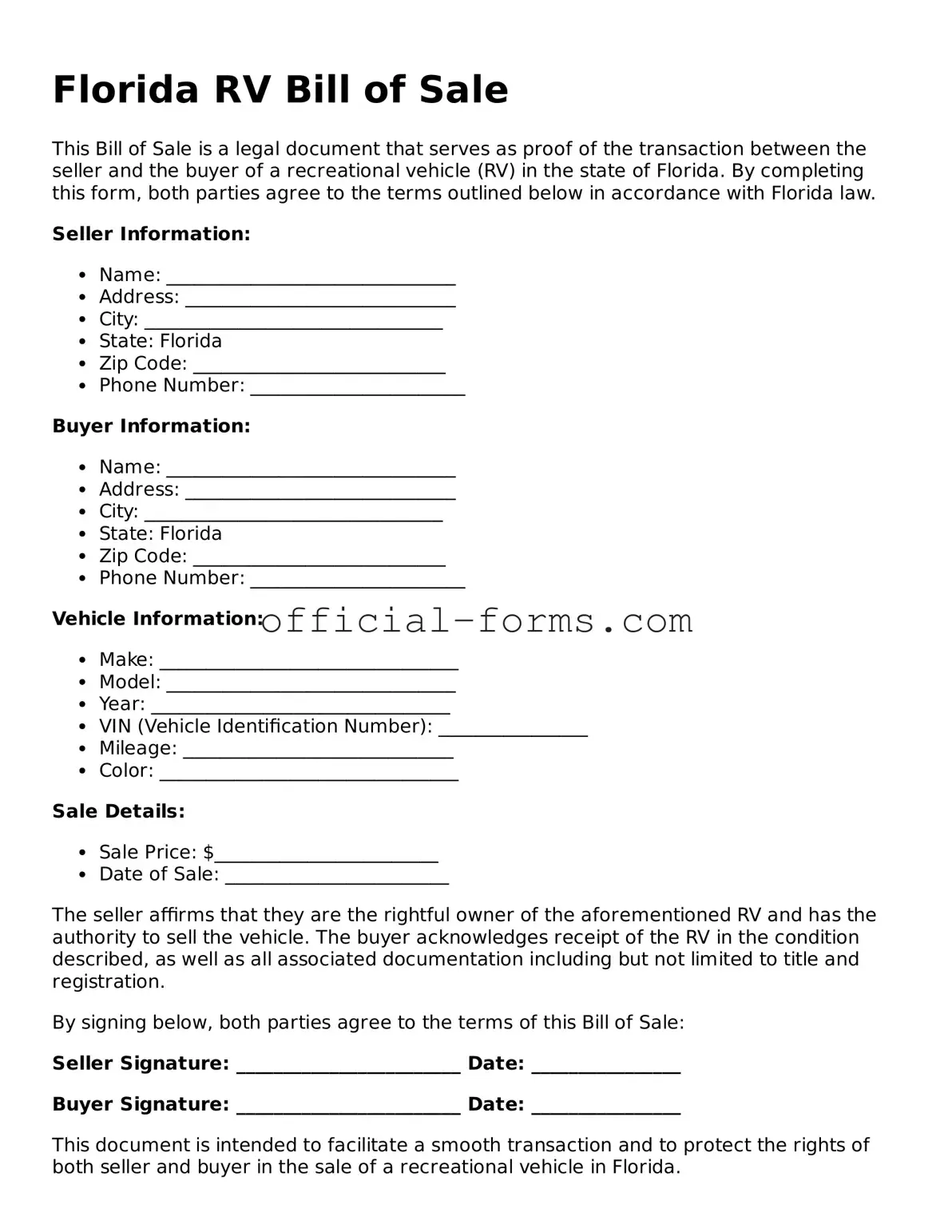Official Florida RV Bill of Sale Document
The Florida RV Bill of Sale form is a legal document that records the sale of a recreational vehicle in the state of Florida. This form serves as proof of ownership transfer between the seller and the buyer. It includes important details about the RV, the parties involved, and the terms of the sale.
Open My RV Bill of Sale Now

Official Florida RV Bill of Sale Document
Open My RV Bill of Sale Now
Don’t leave your form incomplete
Finish RV Bill of Sale online quickly from start to download.
Open My RV Bill of Sale Now
or
➤ PDF
